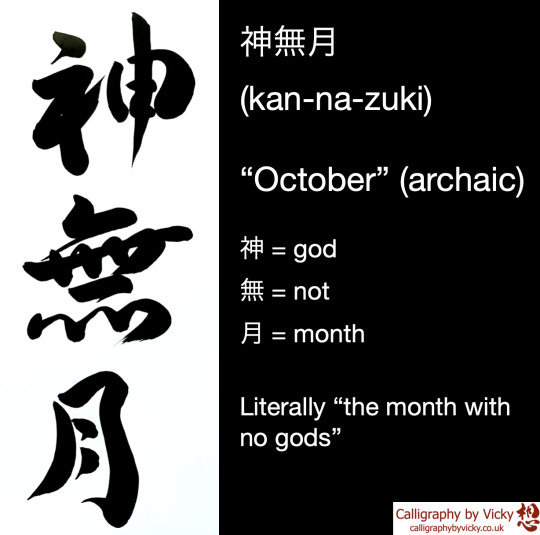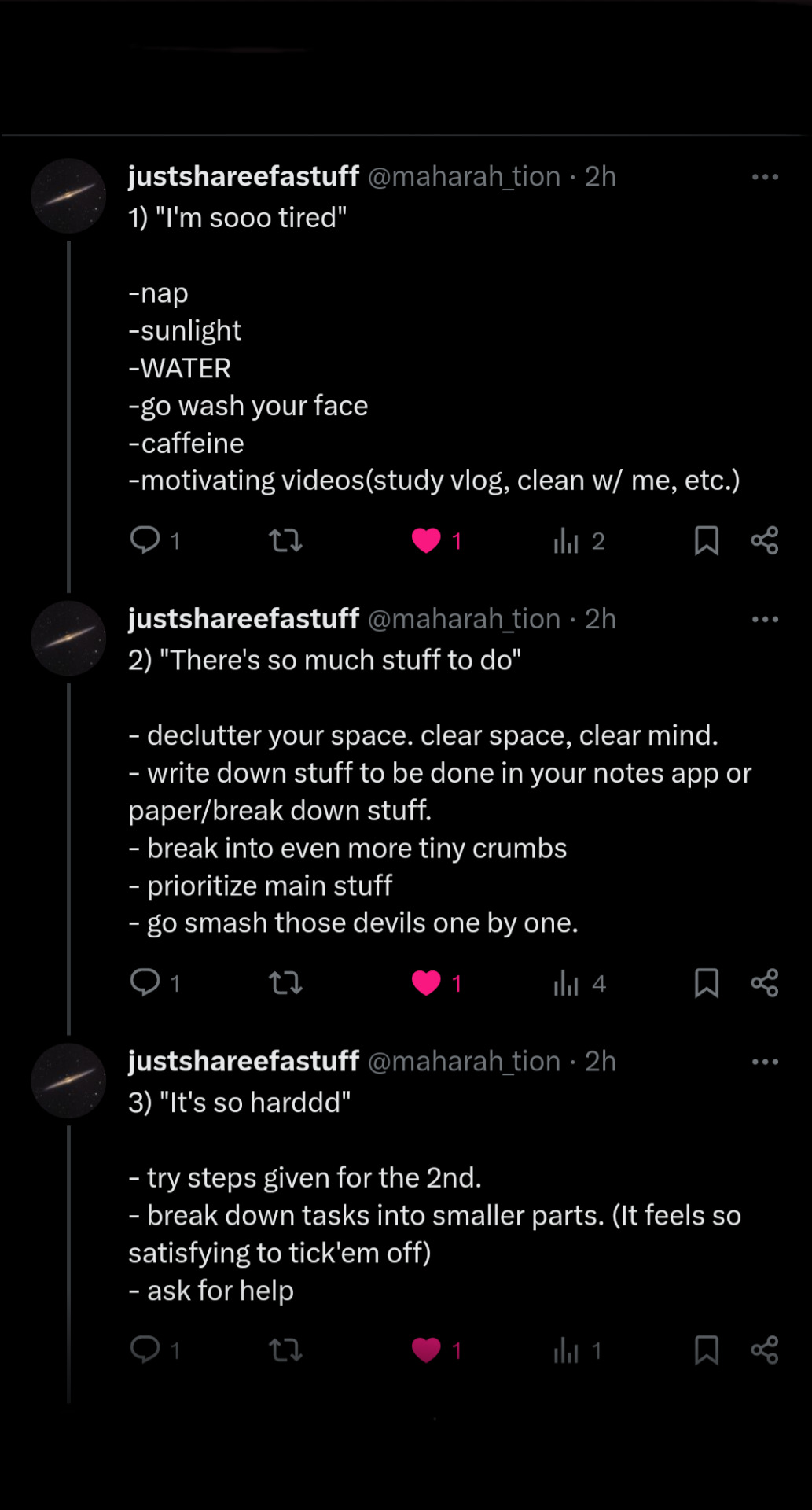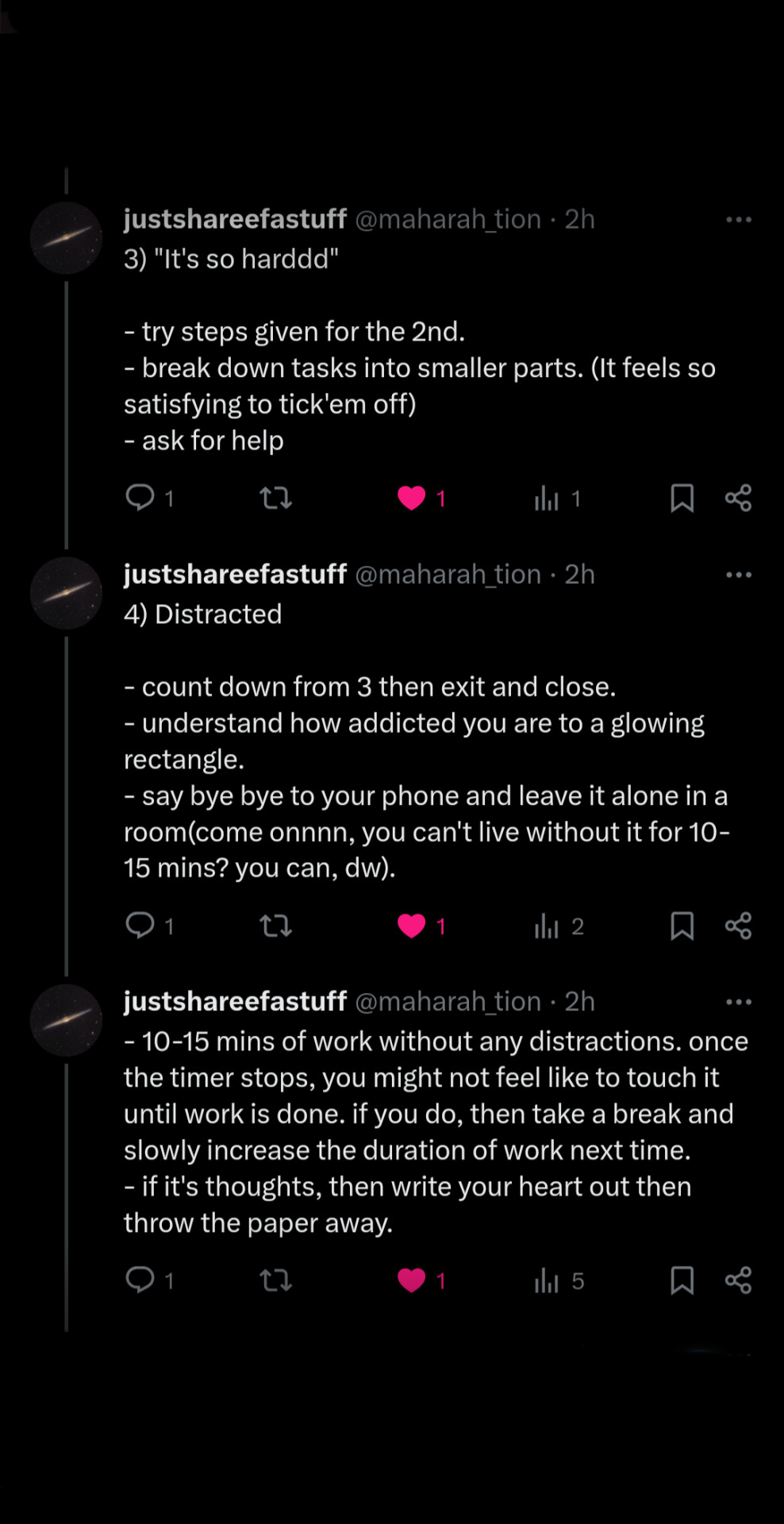Male/25/Mixed.Psychology/Law/Languages.This blog serves the purpose of tricking myself to stay motivated to study.
Don't wanna be here? Send us removal request.
Text
'do you think you're superior for not using AI in your work' thank you for asking! yes i do
143K notes
·
View notes
Photo


Textbook Recommendation | JSPEC Hey guys, I’ve come across an interesting textbook online that I think might come in handy for you! It’s called ‘Japanese Sentence Patterns for Effective Communication’ by Taeko Kamiya. JSPEC is all about being able to express yourself in Japanese. There are 12 chapters that consist of 142 basic expressions/sentence patterns altogether. These sentence patterns cover how to say what you think, how to ask and answer questions, and how to describe events that happened in the past, present, or future. The sentence pattern is first written in English, so that you can understand the meaning, and then is followed by the Japanese translation, an explanation, a few example sentences, and then a practice section where you can create your own examples.
One downside to the textbook that I found is that it does use romaji, and I’ve always strongly discouraged the use of romaji as I think beginners can become too dependent on it and focus on reading romaji instead of reading the actual Japanese characters and text. But if you can look past that, then I think it’s a pretty great, straightforward textbook for beginners! You can purchase it on Amazon, and preview it on Google Books. I have yet to find a pdf of the textbook online so if you have one or know where to find it, please reblog this post with the pdf so that everyone can try it out! However, someone did create an excel spreadsheet of all the sentences used in the textbook and shared it online so I think if you can’t find a copy of the textbook this will be handy!
320 notes
·
View notes
Text
Study Methods: Music Correspondence
The music needed has to be instrumental and cannot involve vocals in any shape or form, as the vocals of the tracks can interfere with the data you are learning and can jumble up sentences, as well as generally distract you.
It is also more beneficial when the music used is of a media that the Student themselves are familiar with (Such as the OST of their childhood favorite games or shows as their brain is already rewired to pay more attention when its playing due to personal connection out of nostalgia/etc.)
Why this works: If you have ever played a favorite game, you may recall entire conversations or scenarios happening that were taking place as you were playing the game. That is due to the fact that your brain created a correspondence either through Visual or Audio of that media with the information/event/etc taking place at the same time. You can create your own correspondences manually that way too.
Instead of assigning one song to an entire field of study, you can assign a media to a field of study. For example the game 'Undertale' will be assigned to 'Psychology'. Structure the field of study into sections, and each section you can assign a soundtrack to. Which soundtrack is what is your own decision. Example the OST 'Heartache' will be assigned to 'Cluster B Disorders'
While studying that specific section, have that soundtrack playing on repeat in the background. You may be feeling like you are going insane but that is needed!
To a later time you can replay the game, and the soundtrack itself WILL make you remember your material. Therefore even during a break that lets you relax, you are able to passively recall information you have learned previously but keeping your brain at the same time stimulated enough with a positive influence (the game itself) that it does feel like active studying.
0 notes
Text
Study Methods: the 3s Method.
credit to tmnastudyhub@instagram
1st Step: Review (5 minutes) Take a quick look at what you have studied prior.
2nd Step: Learn New Material (15 minutes) Focus on new topics or chapters.
3rd Step: Summarize and Reflect (5 minutes) Wrap up your study session by summarizing what you've learned.
1 note
·
View note
Text
不足
ふそく
insufficiency; shortage; deficiency; lack; dearth
不足を借金で補充した。 ふそく を しゃっきん で ほじゅう した。 He made up the deficit with a loan.

32 notes
·
View notes
Text
神無月 (kan-na-zuki) "October" (archaic)

神 = god 無 = not 月 = month
The modern Japanese word for October is 十月 (literally "10th Month), however in the old-fashioned calendar is was known as 神無月, or "the month with no gods".
In October, all the gods in Japan (there are believed to be 8 million of them) go to Izumo Shrine in Shimane Prefecture for a meeting, thus leaving most of Japan with no gods.

The huge shimenawa (sacred rope) at Izumo Shrine.
2K notes
·
View notes
Text

A name I was certain we must have covered! The surname 古賀 is usually read Koga (rarely Furuga), and it belongs to about 105,000 people.
古 means old, but for objects only. It’s read ふる.い, ふる.す, or コ. The radicals are 十 ten and 口 mouth.
賀, as we covered around New Year, means congratulations or joy. It’s read ガ, which you can remember from the katakana カ. Which is part of the radical 加 add, and the other one is 貝 shell/money.
33 notes
·
View notes
Text
7 Reasons you might be procrastinating and how to solve them:



12K notes
·
View notes
Text


I will succeed. Not immediately. But definitely.
6K notes
·
View notes
Text
wanna learn a word that some Germans really love?
✨entschleunigen (verb)✨
it's the opposite of beschleunigen (v) - accelerate and it technically does mean decelerate BUT for that we prefer "abbremsen"
no, entschleunigen is used way more in the sense of "slow down your vibes", to take a break, to pause from the constant hectic and stress of both work and personal matters
a similar term is: einen Gang runterschalten/zurückschalten (to go down a gear) - we do love our automobile motives, huh?




86 notes
·
View notes
Text
one thing that so many students forget is that, a win is a win. if you planned on doing english homework but instead you finished your history essay, celebrate that, don’t be upset taht you didn’t sick to your plan, at least you got SOMETHING DONE. a win is a fucking win and don’t let anyone tell you different.
5K notes
·
View notes
Photo

Signboard at a Japanese pub: 肉もいいけど、日本人よ!再び魚を食べよう!! Meat’s great and all, but hey Japan! Let’s eat fish again!!
肉 (にく) Meat も Also, as well いい (良い) Good けど But, however, although 日本人 (日本人)Japanese person/people よ [particle used to grab attention, indicate certainty, etc.] 再び (ふたたび)Again, once more, a second time 魚 (さかな)Fish 食べる (たべる)To eat
330 notes
·
View notes
Text
ways to say "only", "just" in Japanese
When I started learning Japanese, I quickly discovered that “only” translates to だけ (dake). Soon after, I learned about しか (shika) and then ばかり (bakari). This led me to wonder how many ways there are to express the idea of "only" or "just" in the Japanese language. I began exploring the fascinating world of adverbs that convey limitation or exclusivity, each with its own specific nuance.
Here are some of the terms I’ve discovered (which I may continue to expand upon):
だけ (dake): Strongly emphasizes exclusivity, meaning that nothing else is included or considered. Example: 水だけください。 (Please give me only water.)
しか (shika) (used with a negative verb): Often conveys a sense of disappointment or limitation, implying that there’s nothing but the mentioned item, often with a sense of restriction. Example: 私は日本語しか話せません。 (I can only speak Japanese.)
ばかり (bakari): Suggests the dominance or prevalence of something, often with a sense of excess or monotony and a negative nuance. It does not imply strict exclusivity. Example: お菓子ばかり食べている。 (I’m only eating snacks.)
ばかし (bakashi): A casual variant of ばかり, used mostly in spoken language. It conveys a similar meaning but carries a more informal tone. Example: 遊んでばっかしいる。 (He’s only playing.)
のみ (nomi): Used in formal or written contexts, conveying exclusivity. It can sound elegant and refined. Example: 本日のみ有効です。 (Valid only today.)
ばかりか (bakari ka): This expression expands the meaning by introducing additional information, indicating more than just "only." Example: 彼は優しいばかりか、面白いです。 (He is not only kind but also funny.)
だけしか (dake shika) (used with a negative verb): This term combines だけ and しか, emphasizing strong exclusivity when used with negative constructions. Example: これだけしかない。 (There is only this.)
こそ (koso): Indicates that the highlighted item is particularly special or the best choice, often implying that nothing else can compare. Example: 今日こそ勉強する。 (Today, of all days, I will study.)
たった (tatta): Implies that an amount is minimal and often inadequate, highlighting a sense of limitation. Example: たった一人で旅行した。 (I traveled with just one person.)
わずか (wazuka): Emphasizes a minimal quantity or degree, often with a sense of surprise. Example: わずか10分で終わった。 (It only took 10 minutes.)
ほんの (honno): Indicates a small or trivial amount, often used to downplay something. Example: ほんの少しだけ食べた。 (I ate just a little bit.)
に限る (ni kagiru): This expression is used to convey that something is the best or only suitable choice for a situation. Example: 夏はアイスクリームに限る。 (Ice cream is the best for summer.)
だけでなく (dake de naku): Similar to ばかりか , this phrase is used to express that there’s more than just one thing happening. Example: 彼女は賢いだけでなく、優しいです。 (She is not only smart but also kind.)
単に (tan ni): Indicates simplicity; often used to clarify or explain something in a straightforward manner. Example: 単に冗談だよ。 (It’s just a joke.)
あくまで (akumade): Suggests that something is true only to a certain extent or in a specific context. Example: あくまで私の意見です。 (This is just my opinion.)
たかが (takaga): Often carries a dismissive connotation, suggesting that something is not very important. Example: たかが試験一回でどうなるものか。 (It’s just one exam; it won’t change much.)
I love discovering all these subtle differences and nuances, even if it can be frustrating at times. If you know of any more, please share!
999 notes
·
View notes
Text
gentle reminder you can rise up from everything. you can recreate yourself. nothing is permanent. you are not stuck. you have choices. you can think new thoughts. you can learn something new. you can create new habits. all that matters is that you decide today and never look back.
27K notes
·
View notes
Text
Compliments in Japanese
How do you give compliments in Japanese? Japanese tends to be a very 曖昧 (あいまい) or vague language, so direct compliments tend to be less common.
お世辞 おせじ compliment
誉め言葉 ほめことば compliment, praise
Here are some compliments that can be used in most situations.

Appearance・見た目
Polite 髪の毛切りましたか?似合いますね。 かみのけきりましたか?にあいますね。 Did you cut your hair? It looks good on you.
Casual 髪の毛切った?似合うよ。 かみのけきった?にあうよ。 Did you cut your hair? It looks good.
Polite そのシャツ/ワンピース/服いいですね。 そのシャツ/ワンピース/ふくいいですね。 That shirt/dress/outfit looks good.
Casual そのシャツ/ワンピース/服いいね。 そのシャツ/ワンピース/ふくいいね。 That shirt/dress/outfit looks good.
Polite いい笑顔ですね。 いいえがおですね。 You have a nice smile.
Casual いい笑顔だね。 いいえがおだね。 You have a nice smile.
Work・仕事
Polite 良くやりましたね! よくやりましたね! Good job! / Well done!
Casual 良くやったね! よくやったね! Good job! / Well done!
Polite お見事です! おみごとです! Great work! / Excellent!
Casual お見事! おみごと! Great work! / Excellent!
Polite 今日のプレゼン/スピーチ/アイディアとても良かったです。 きょうのプレゼン/スピーチ/アイディアとてもよかったです。 Today's presentation/speech/idea was very good.
Casual 今日のプレゼン/スピーチ/アイディアとても良かったよ。 きょうのプレゼン/スピーチ/アイディアとてもよかったよ。 Today's presentation/speech/idea was very good.
Skill・腕前
Polite 料理上手ですね。 りょうりじょうずですね。 You are good at cooking.
Casual 料理上手いね。 りょうりうまいね。 You are a good cook.
Polite 写真を撮るセンスがいいですね。 しゃしんをとるセンスがいいですね。 You have good photography sense.
Casual 写真を撮るセンスがいいね。 しゃしんをとるセンスがいいね。 You have good photography sense.
Polite 英語がペラペラですね。 えいごがペラペラですね。 Your English is very fluent.
Casual 英語がペラペラだね。 えいごがペラペラだね。 Your English is very fluent.
315 notes
·
View notes

